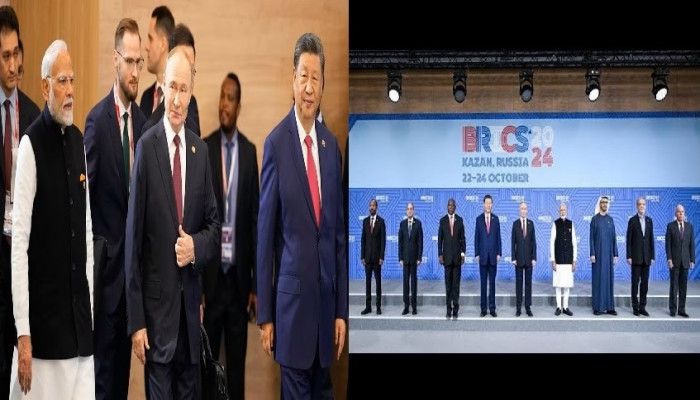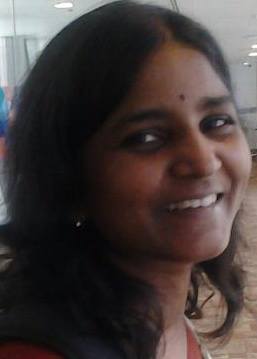India Reiterates Need for Reforming Global Institutions at Kazan BRICS Summit
- In Foreign Policy
- 12:53 AM, Oct 29, 2024
- Ramaharitha Pusarla
Conceived, originally as a concept by Goldman Sachs’s economist Jim O’Neil in his study titled “The World Needs Better Economic BRICs” in 2001, that has great economic potential and capability to emerge as a counterweight, BRIC (the first letters of all the respective countries) came into existence much later. In September 2006, Foreign Ministers of Brazil, Russia, India and China met along the sidelines of the 61st UNGA session and decided to work together. Russia, then part of the G8 initiated the creation of BRIC.
With no clear-cut laid-out charter and a secretariat, this informal group slowly acquired a degree of working comfort over the years. By 2011 at the Third Summit of Leaders at Sanya in China, South Africa joined it making it BRICS. BRICS, a motley group of countries with divergences and asymmetries invited a lot of scepticism and incertitude initially. However, over the years, the BRICS have evolved a common agenda and gained prominence thanks to its growing economic muscle.
After the expansion of BRICS in 2023 and the potential joining of new countries- Iran, Egypt, Ethiopia and the UAE- the BRICS now represents 45% of the world’s population and accounts for one-third of the global economy.
Ostracised as a Pariah state amid the Ukraine war, the 16th BRICS Summit hosted by Russia at Kazan was attended by the leaders and representatives of over 30 countries. has distinctly accentuated the international stature of Moscow. Condemning Moscow’s aggression, the West slapped several rounds of punitive sanctions to cripple the Russian economy and erode its global influence. The West has even started routing the interests from the frozen Russian assets to Ukraine’s war efforts. But to their consternation, notwithstanding their isolationist approach and demonisation of Russia, several countries still chose to rally behind BRICS, an organisation helmed by Russia.
Ahead of the Kazan Summit, 34 countries have officially applied for BRICS membership. Of them, 13 countries - Algeria, Belarus, Bolivia, Cuba, Indonesia, Kazakhstan, Malaysia, Nigeria, Thailand, Turkey, Uganda, Uzbekistan, and Vietnam were designated as BRICS Partner Countries. The list includes several countries that defied the West’s sanctions. The expanded BRICS grouping heralding the developmental aspirations and capabilities of the members and observers signified the emergence of a robust grouping. A group, intently non-west is fervidly seeking solutions to the outstanding issues amid geopolitical conflicts, economic uncertainties and looming technological challenges.
The post-World War II World order dominated by the West and multilateral institutions is proving to be ineffectual in catering to the developmental needs of emerging economies. With the global power shifting from the West to the East with the rise of China, the relevance of the US-led world is in the doldrums. The so-called non-West essentially includes the Global South. Akin to BRICS, the Global South is not a unified entity. It is an ensemble of fledgling democracies, authoritarian regimes, Islamist regimes and even failed states. But what brought them together was their consensus on a myriad of concerns.
Reeling under the collective economic shocks of COVID-19 and the Ukraine War, the Global South is finding itself at the receiving end of the geopolitical conflicts. The existing Western multilateral institutions are failing to address these global challenges. The US's increasingly overbearing disposition, cavilling the neutral stance and strategic autonomy of nations is compelling them to strengthen alternatives to the US-dominated global order. Despite the inherent incongruencies in the BRICS, given its growing economic heft, countries are willing to be part of a flexible group which isn’t dominated by a single power or hijacked by a single narrative.
Wary of the divisive tactics of the US and its unprincipled military intervention under the pretext of democratising nations, countries are advocating for a multipolar world. A world order that prioritises dialogue and partnership over confrontation. Aptly reflecting the collective hankerings of nations, the theme of the Kazan Summit “Strengthening Multilateralism for Just Global Development and Security” has chartered a framework to tackle the global challenges.
Positioning as the leader of the Global South, India has been objectively voicing out the problems of the Global South at international forums. With the induction of the African Union into the G20, India has showcased its commitment. Unlike Russia and China which are perceived to be anti-West, India which maintains good ties with the US is considered a neutral power.
Incidentally, PM Modi’s bilateral with President Xi after five years along the sidelines of the BRICS had also sent a strategic message to nations about India’s foreign policy. India has burnished its credentials as a strong and amiable nation by reaching a consensus on the border dispute with China. Refusing to meekly surrender, India strongly repulsed Chinese incursions for over four years. Alongside, India patiently engaged in painstaking commander-level talks and diplomacy to resolve the issue peacefully.
Parallelly, India stood its ground in the face of the US’s secondment of Canada’s malicious allegations. By calling the bluff of Canada for harbouring secessionist elements New Delhi pulled back its High Commissioner shifting the onus of resurrecting the bilateral ties on the Western nation. India’s firm stance against Western machinations has earned it a special place. Demonstrating its tough resolve in safeguarding its national interests amid direct assaults by the superpowers, has certainly elevated its stature.
At the open plenary of the BRICS Summit, PM Modi has set forth an agenda for mitigating global challenges. He announced the proposed launch of the BRICS Startup Forum and welcomed the “consensus reached within BRICS on WTO reforms, trade facilitation in agriculture, resilient supply chains, e-commerce and special economic zones (SEZ) for economic cooperation, BRICS Open Carbon Market Partnership”. Highlighting the need for greater financial integration and trade in local currencies, he cited India’s success with UPI which is now adopted by so many countries.
Addressing the major global challenge- climate change, PM Modi welcomed countries to join Indian initiatives like Green Credit started at COP28, International Solar Alliance, Coalition for Disaster Resilient Infrastructure, Mission LiFE i.e. Lifestyle for Environment, Ek Ped Maa Ke Naam or a Tree in the name of the mother. Modi also enunciated India’s Gati Shakti portal, the multi-modular connectivity program, the BRICS Vaccine Research &Development Centre, the Railway Research Network Initiative, the BRICS Business Council and the BRICS Women Business Alliance.
To nurture BRICS into an inclusive and diverse platform, Modi stressed the importance of addressing the challenges faced by countries- economic uncertainty, food security, health security, energy security, cyber security, climate change and terrorism. At the closed plenary, advocating a people-centric approach, Modi once again reinforced the need for diplomacy and dialogue, condemned the double standards of certain nations towards terrorism and welcomed new partner countries.
PM Modi strongly pitched the need for the introduction of reforms in global institutions like UNSC, multilateral development banks and WTO. He appealed to BRICS to collectively and unitedly raise voices. Putting speculations to rest in unequivocal terms, Modi prompted, “BRICS must be careful to ensure that this organisation does not acquire the image of one that is trying to replace global institutions” and advised that BRICS should be perceived as an organisation seeking to reform them.
Discernment of BRICS as an anti-west grouping is misplaced. BRICS is essentially shaping as a group of small countries endeavouring to find a balance of power and seeking to “forge an alliance based on shared interests and mutual respect”.
EAM Jaishankar who represented PM Modi at the BRICS Outreach Session declared that the time for a multipolar world has arrived. For an equitable world order, he suggested that independent platforms like BRICS must be strengthened and expanded. The benefits of globalisation have been uneven. It is high time that distortions in global infrastructure and production capabilities must be addressed for the “just development” of all nations.
BRICS has been a confluence of different outlooks and ideologies. However, over a period of time, the organisation has evolved a framework on the basis of consensus. Turning the inherent diversity into its strength, BRICS is attempting to make a difference in providing an alternative financial infrastructure, transaction systems, and payment methods to mitigate the impact of the unilateral weaponisation of sanctions.
Cultivating respect for each other's traditions, BRICS is making a fervent attempt to advance socioeconomic progress and development of nations that attained independence from Colonialism. Dialogue, coordination and cooperation are essential to promote the BRICS spirit. By disallowing the dominance of any single voice, BRICS is carving a special place as an alternative multilateral organisation capable of offering solutions to the longstanding complex issues.
Disclaimer: The opinions expressed within this article are the personal opinions of the author. MyIndMakers is not responsible for the accuracy, completeness, suitability, or validity of any information on this article. All information is provided on an as-is basis. The information, facts or opinions appearing in the article do not reflect the views of MyindMakers and it does not assume any responsibility or liability for the same.







Comments